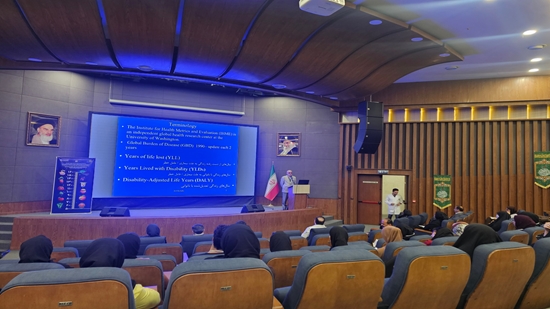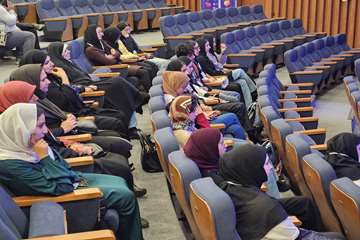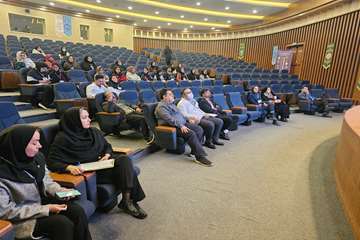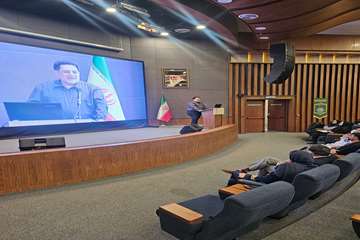Vice- Chancellor of International Affairs
The first specialized symposium on lead poisoning: prevention, diagnosis, and treatment at Shohadaye Tajrish Hospital was held
At the same time as the start of the World Lead Poisoning Prevention Week, this meeting was held with the efforts of the World Health Organization, Shahid Beheshti University of Medical Sciences and Shohadayeh Tajrish Hospital.

Dr. Sayyed Jafar Hossain at the inaugural meeting of this symposium explained the WHO international actions and measures done in this field.
Dr. Seyyed Jaafar Hossein, the Representative of the World Health Organization in Iran, expressing his satisfaction with the holding of this symposium, said: "We are happy that this serious issue has been put in the spotlight. The amount of lead absorption in children is 4.5and this age group is more vulnerable compared to other age groups, also malnourished children are more at risk. Among the symptoms of exposure to lead in children are neurological, intellectual, behavioral and irreversible learning disorders."
He also pointed out the importance of a healthy lifestyle in preventing lead poisoning and said: “healthy diet, exercise, appropriate health and nutrition policies, a safe house with protection, transportation and public health are among the factors that require Cooperation of the countries. At last, I would like to ask the policy makers to prioritize the policies related to the prevention of lead-poisoning.”
He also mentioned the presence of international students in this event and stated: “For the first time, we saw the presence of international students in a scientific event. Also, our ultimate goal is the cooperation of Iranian universities with the World Health Organization to expand activities and cooperation that lead to the prevention, diagnosis and treatment of lead poisoning.”
While appreciating the attempts of the performers of this symposium, Dr. Babak Sharif Kashani, the Vice-Chancellor of International Affairs, emphasized that the familiarization with and prevention of lead poisoning is crucial.
He continued: “Health must include knowledge and action. People should get familiar with this issue in order to move toward a healthier society.”
Referring to the effects of lead poisoning on people, especially on children, he noted that lead poisoning affects the physical and brain development as well as the children’s IQ. According to the sustainable development goals of SDG3, all countries are supposed to significantly reduce the number of deaths and illnesses caused by life-threatening chemicals, water, air, and soil pollution by the year 2030. Therefore, we should act seriously in this domain.
Dr. Fatemeh Sadeghi, The Director of Medical Toxicology of the Asia Pacific Association of the Environmental and Labor Health Center of the Ministry of Health, pointed out in the continuation of this symposium: “Lead is one of the first ten dangerous chemical substances in the world and one of the most common environmental chemical pollutants, which affects two million people every year and it can be prevented by observing safety measures.”
According to this report, the first specialized symposium "Lead poisoning: prevention, diagnosis and treatment" organized by Shahid Beheshti University of Medical Sciences in cooperation with the Ministry of Health, Social Determinants of Health Research Center, The Medical Toxicology of the Asia Pacific Association and Shohdayeh Tajrish Hospital on Sunday October 22, 2023, coincided with the start of the World Lead Poisoning Prevention Week at Shohdayeh Tajrish Hospital.




.jpg)
Comment